-
 Bitcoin
Bitcoin $114400
0.68% -
 Ethereum
Ethereum $3550
2.48% -
 XRP
XRP $3.001
4.99% -
 Tether USDt
Tether USDt $0.9999
0.01% -
 BNB
BNB $757.6
1.46% -
 Solana
Solana $162.9
1.07% -
 USDC
USDC $0.9998
0.00% -
 TRON
TRON $0.3294
0.91% -
 Dogecoin
Dogecoin $0.2015
2.46% -
 Cardano
Cardano $0.7379
2.01% -
 Stellar
Stellar $0.4141
8.83% -
 Hyperliquid
Hyperliquid $37.83
-1.91% -
 Sui
Sui $3.454
0.76% -
 Chainlink
Chainlink $16.62
3.53% -
 Bitcoin Cash
Bitcoin Cash $554.6
2.84% -
 Hedera
Hedera $0.2486
3.91% -
 Ethena USDe
Ethena USDe $1.001
0.00% -
 Avalanche
Avalanche $21.95
3.34% -
 Toncoin
Toncoin $3.563
-2.85% -
 Litecoin
Litecoin $112.7
2.65% -
 UNUS SED LEO
UNUS SED LEO $8.977
0.13% -
 Shiba Inu
Shiba Inu $0.00001232
1.85% -
 Uniswap
Uniswap $9.319
2.93% -
 Polkadot
Polkadot $3.632
1.38% -
 Monero
Monero $307.2
2.36% -
 Dai
Dai $0.9997
-0.03% -
 Bitget Token
Bitget Token $4.340
0.91% -
 Pepe
Pepe $0.00001048
1.07% -
 Cronos
Cronos $0.1348
3.26% -
 Aave
Aave $261.5
1.93%
Bitget perpetual contract trading rules
By adhering to Bitget's perpetual contract trading rules, traders can effectively navigate the cryptocurrency derivatives market, manage their risk, and maximize their trading potential.
Nov 09, 2024 at 07:14 am
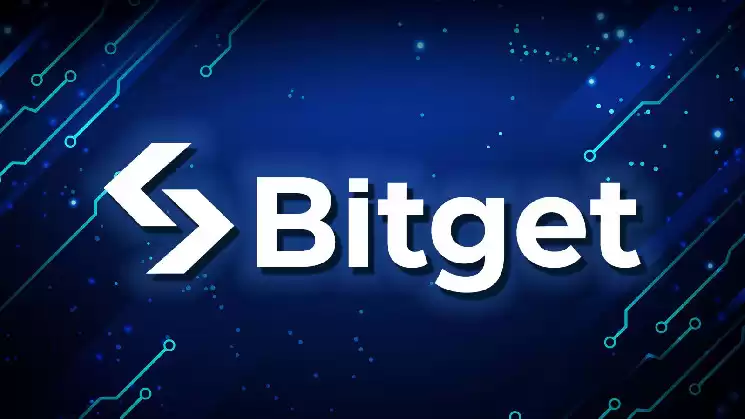
Bitget Perpetual Contract Trading Rules: A Comprehensive Guide
Bitget, a leading cryptocurrency exchange, offers perpetual contract trading, a derivative instrument that allows traders to speculate on the future price of cryptocurrencies. This guide provides a comprehensive overview of Bitget's perpetual contract trading rules, covering everything from account setup to order placement and risk management.
1. Understanding Perpetual Contracts
- Perpetual contracts are financial instruments that derive their value from the underlying asset, in this case, cryptocurrencies. They are similar to futures contracts but do not have a fixed expiration date, allowing traders to hold positions indefinitely.
- The price of a perpetual contract is determined by the spot price of the underlying asset, plus or minus a funding rate.
2. Opening an Account on Bitget
- To trade perpetual contracts on Bitget, you need to create an account. The process involves providing personal information, verifying your identity, and setting up a secure password.
- Bitget offers different account types tailored to the needs of different traders. Choose the account type that best suits your trading style and experience level.
3. Funding Your Account
- Once your account is set up, you need to fund it to start trading perpetual contracts.
- Bitget supports multiple deposit methods, including bank transfers, credit cards, and cryptocurrencies. Select the method that is most convenient for you.
4. Choosing a Trading Pair
- Bitget offers a wide range of perpetual contract trading pairs, covering major cryptocurrencies like Bitcoin (BTC), Ethereum (ETH), and Binance Coin (BNB).
- Choose the trading pair that aligns with your market expectations and risk tolerance.
5. Placing an Order
- To place an order for a perpetual contract, you need to specify the contract size, order type, and leverage.
- Bitget provides various order types, such as market orders, limit orders, and stop orders, allowing traders to customize their trade execution strategies.
- Leverage allows traders to multiply their potential profits, but it also increases their risk. Use leverage wisely.
6. Managing Your Risk
- Risk management is crucial in perpetual contract trading.
- Bitget offers several risk management tools, such as stop-loss orders and take-profit orders, to help traders limit their losses.
- Traders should also monitor their margin level, which represents their available trading capital.
7. Settlement and Withdrawals
- Perpetual contracts are settled on a daily basis.
- After settlement, traders can withdraw their profits or reinvest them in new trades.
- Bitget supports multiple withdrawal methods, providing traders with convenient access to their funds.
8. Fees and Costs
- Bitget charges trading fees and funding rates on perpetual contract trades.
- The trading fees vary depending on the trading pair and the maker/taker status.
- The funding rate is paid or received by traders depending on the market conditions.
Disclaimer:info@kdj.com
The information provided is not trading advice. kdj.com does not assume any responsibility for any investments made based on the information provided in this article. Cryptocurrencies are highly volatile and it is highly recommended that you invest with caution after thorough research!
If you believe that the content used on this website infringes your copyright, please contact us immediately (info@kdj.com) and we will delete it promptly.
- Cryptocurrency, Altcoins, and Profit Potential: Navigating the Wild West
- 2025-08-04 14:50:11
- Blue Gold & Crypto: Investing Disruption in Precious Metals
- 2025-08-04 14:30:11
- Japan, Metaplanet, and Bitcoin Acquisition: A New Era of Corporate Treasury?
- 2025-08-04 14:30:11
- Coinbase's Buy Rating & Bitcoin's Bold Future: A Canaccord Genuity Perspective
- 2025-08-04 14:50:11
- Coinbase's Buy Rating Maintained by Rosenblatt Securities: A Deep Dive
- 2025-08-04 14:55:11
- Cryptos, Strategic Choices, High Returns: Navigating the Meme Coin Mania
- 2025-08-04 14:55:11
Related knowledge
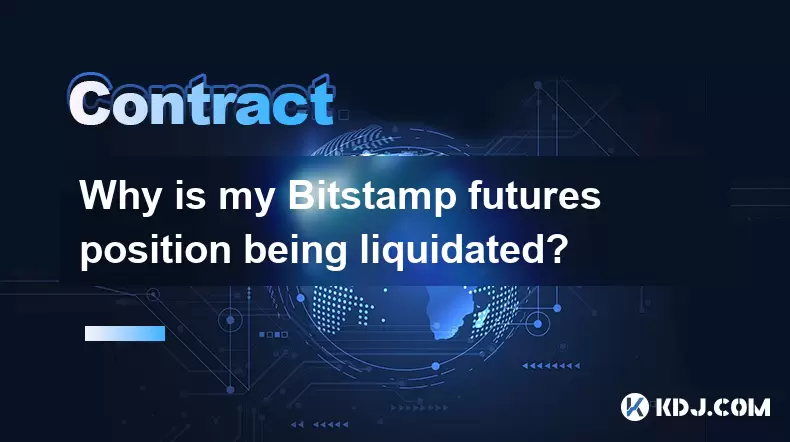
Why is my Bitstamp futures position being liquidated?
Jul 23,2025 at 11:08am
Understanding Futures Liquidation on BitstampFutures trading on Bitstamp involves borrowing funds to open leveraged positions, which amplifies both po...
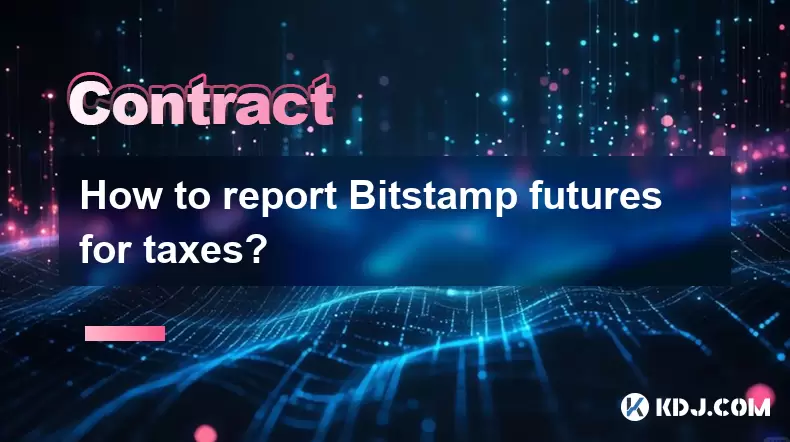
How to report Bitstamp futures for taxes?
Jul 30,2025 at 08:35am
Understanding Bitstamp Futures and Taxable EventsWhen trading Bitstamp futures, it’s essential to recognize that these financial instruments are treat...
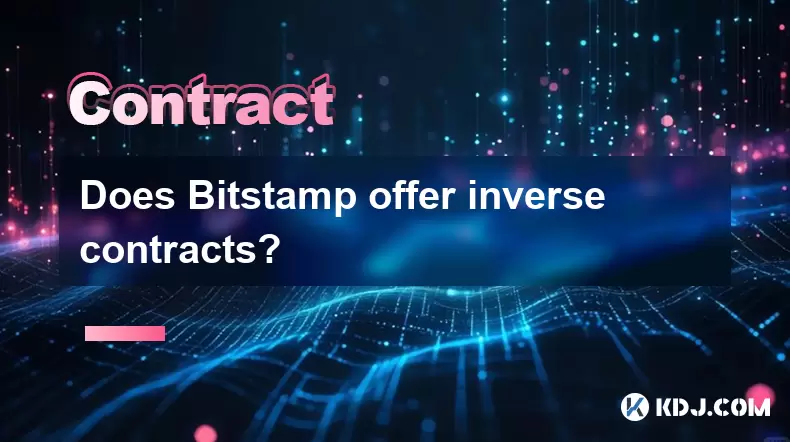
Does Bitstamp offer inverse contracts?
Jul 23,2025 at 01:28pm
Understanding Inverse Contracts in Cryptocurrency TradingIn the realm of cryptocurrency derivatives, inverse contracts are a specific type of futures ...
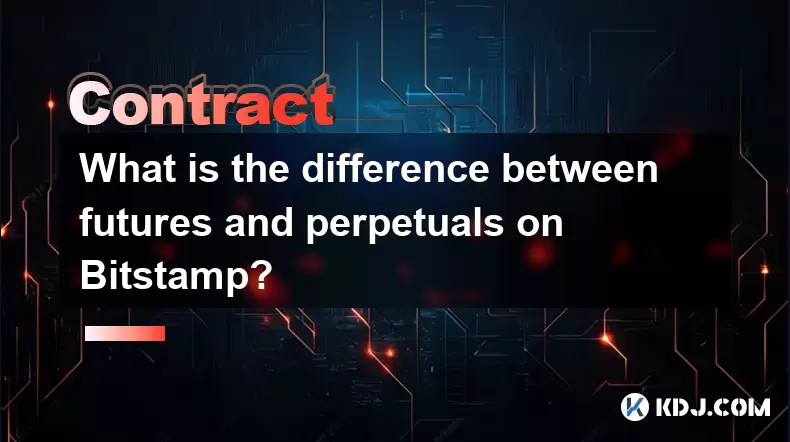
What is the difference between futures and perpetuals on Bitstamp?
Jul 27,2025 at 05:08am
Understanding Futures Contracts on BitstampFutures contracts on Bitstamp are financial derivatives that allow traders to speculate on the future price...
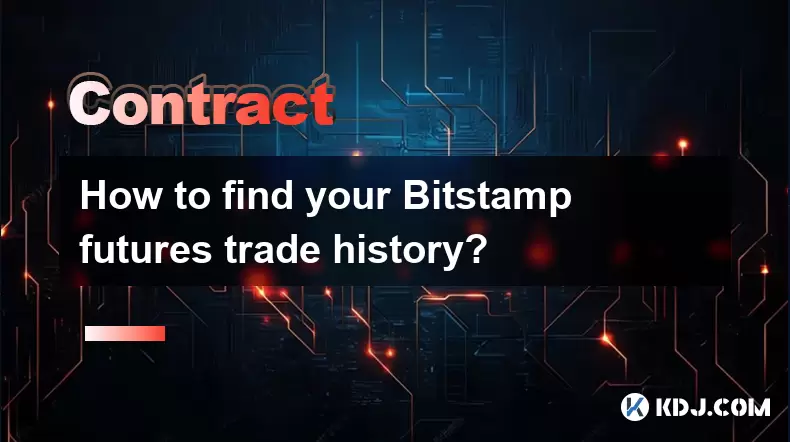
How to find your Bitstamp futures trade history?
Jul 23,2025 at 08:07am
Understanding Bitstamp and Futures Trading AvailabilityAs of the current state of Bitstamp’s service offerings, it is critical to clarify that Bitstam...
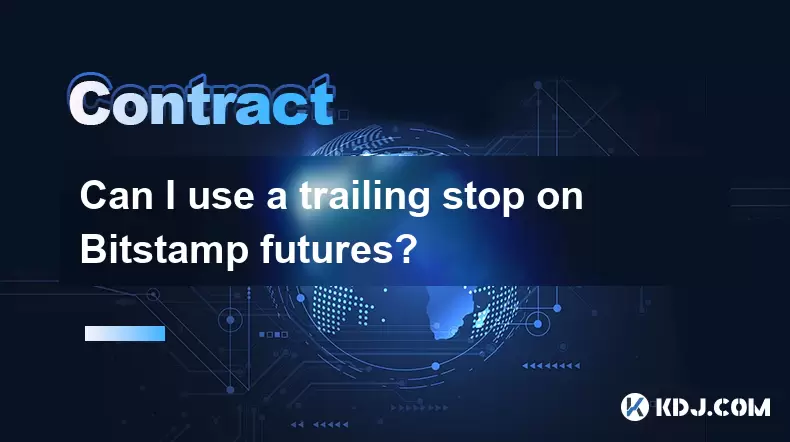
Can I use a trailing stop on Bitstamp futures?
Jul 23,2025 at 01:42pm
Understanding Trailing Stops in Cryptocurrency TradingA trailing stop is a dynamic type of stop-loss order that adjusts automatically as the price of ...

Why is my Bitstamp futures position being liquidated?
Jul 23,2025 at 11:08am
Understanding Futures Liquidation on BitstampFutures trading on Bitstamp involves borrowing funds to open leveraged positions, which amplifies both po...

How to report Bitstamp futures for taxes?
Jul 30,2025 at 08:35am
Understanding Bitstamp Futures and Taxable EventsWhen trading Bitstamp futures, it’s essential to recognize that these financial instruments are treat...

Does Bitstamp offer inverse contracts?
Jul 23,2025 at 01:28pm
Understanding Inverse Contracts in Cryptocurrency TradingIn the realm of cryptocurrency derivatives, inverse contracts are a specific type of futures ...

What is the difference between futures and perpetuals on Bitstamp?
Jul 27,2025 at 05:08am
Understanding Futures Contracts on BitstampFutures contracts on Bitstamp are financial derivatives that allow traders to speculate on the future price...

How to find your Bitstamp futures trade history?
Jul 23,2025 at 08:07am
Understanding Bitstamp and Futures Trading AvailabilityAs of the current state of Bitstamp’s service offerings, it is critical to clarify that Bitstam...

Can I use a trailing stop on Bitstamp futures?
Jul 23,2025 at 01:42pm
Understanding Trailing Stops in Cryptocurrency TradingA trailing stop is a dynamic type of stop-loss order that adjusts automatically as the price of ...
See all articles

























































































